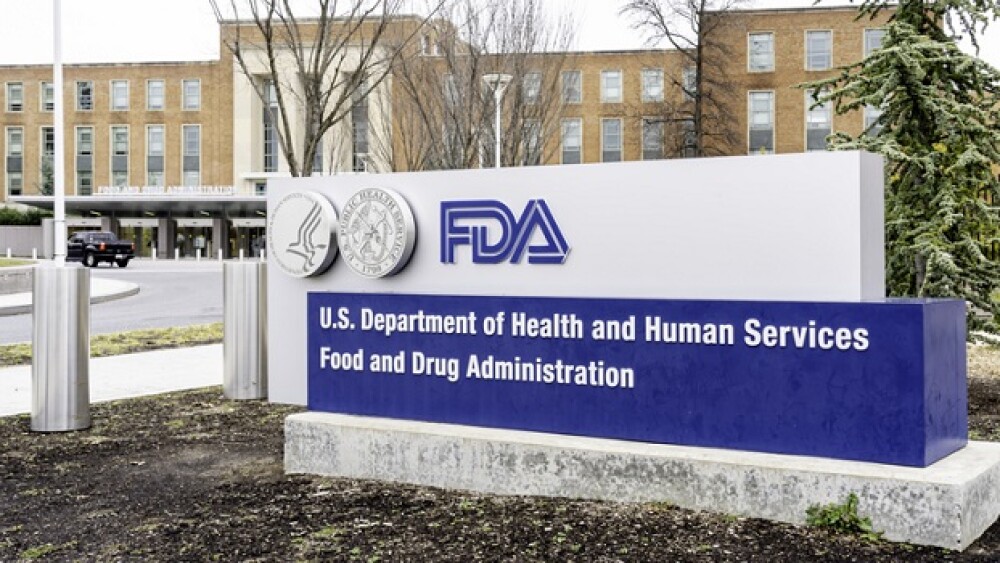The FDA’s Complete Response Letter identified problems with the drug candidate’s chemistry, manufacturing and controls, parent company Shin Nippon Biomedical Laboratories announced Thursday.
Pictured: FDA signage outside its headquarters/iStock, JHVEPhoto
The FDA has rejected Satsuma Pharmaceuticals’ investigational dihydroergotamine nasal powder product STS101 for the treatment of acute migraine, according to parent company Shin Nippon Biomedical Laboratories‘ press release posted Thursday.
The regulator’s Complete Response Letter (CRL) pointed to problems with STS101’s chemistry, manufacturing and controls. Satsuma will discuss the rejection with the FDA, building toward a resubmission for the nasal drug.
SNBL’s Japan-listed stock dropped around 12% Thursday in response to the news, according to Reuters.
The CRL did not identify safety issues with STS101, nor did it ask Shin Nippon Biomedical Laboratories (SNBL) to conduct additional studies, according to an Endpoints News.
STS101 is a reformulated version of dihydroergotamine mesylate (DHE), a well-established migraine medication for nasal-route administration. The drug candidate also utilizes Satsuma’s proprietary device for delivery.
Compared with existing acute migraine treatments, STS101 is designed to be more convenient and allows for self-administration, according to Satsuma’s website. It also has more rapid absorption and more quickly reaches peak DHE plasma levels as compared with liquid nasal spray formulations, which in turn could translate to better efficacy, the company contends.
Satsuma backed its New Drug Application for STS101, which the FDA accepted in May 2023, with data from the Phase III ASCEND study, which gave more than 10,500 doses of STS101 over 18 months to 446 enrolled patients.
In September 2022, long-term data from ASCEND demonstrated that at two hours after treatment, STS101 could elicit freedom from pain and from the most bothersome symptom in 34.2% and 53.4% of all treated migraine attacks, respectively. The drug candidate also eliminated the need for rescue medications in 94% of treated attacks.
In terms of safety, ASCEND found no clinically relevant systemic findings or unexpected treatment-related serious adverse events. Most toxicities were mild and transient.
Also included in Satsuma’s data package for STS101 is the Phase III SUMMIT trial, which failed its primary efficacy bar. The company reported in November 2022 that in SUMMIT, STS101 could not significantly distinguish itself from placebo in terms of freedom from pain and from the most bothersome symptom two hours post-treatment.
At the time, the company announced that it had no plans to independently commercialize STS101 and would instead look for alternatives that would “maximize value for shareholders, while minimizing cash expenditures.”
Satsuma began in 2016 and STS101 is its only asset so far. In March 2023, following the rocky development road for STS101 and in order to cut back on costs, Satsuma announced that it would lay off approximately 36% of its staff. A few weeks later, SNBL announced that it would acquire Satsuma.
Tristan Manalac is an independent science writer based in Metro Manila, Philippines. He can be reached at tristan@tristanmanalac.com or tristan.manalac@biospace.com.






